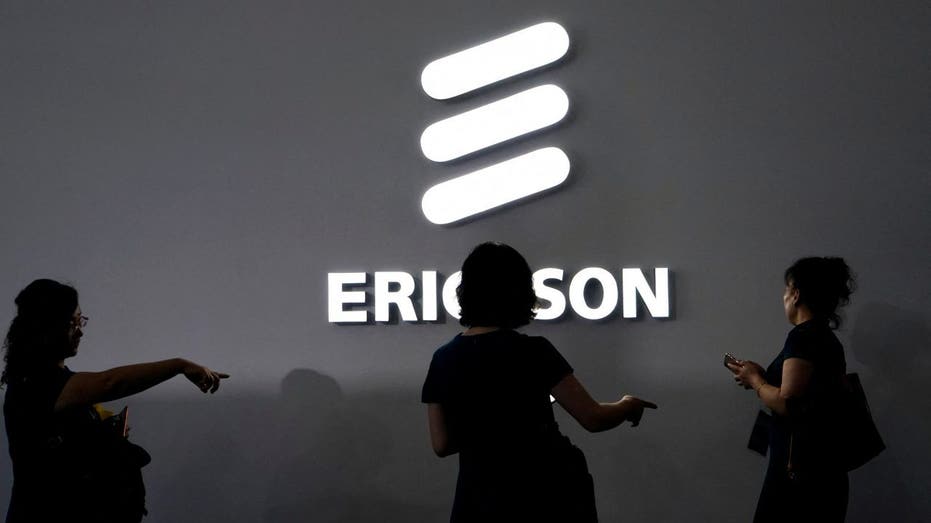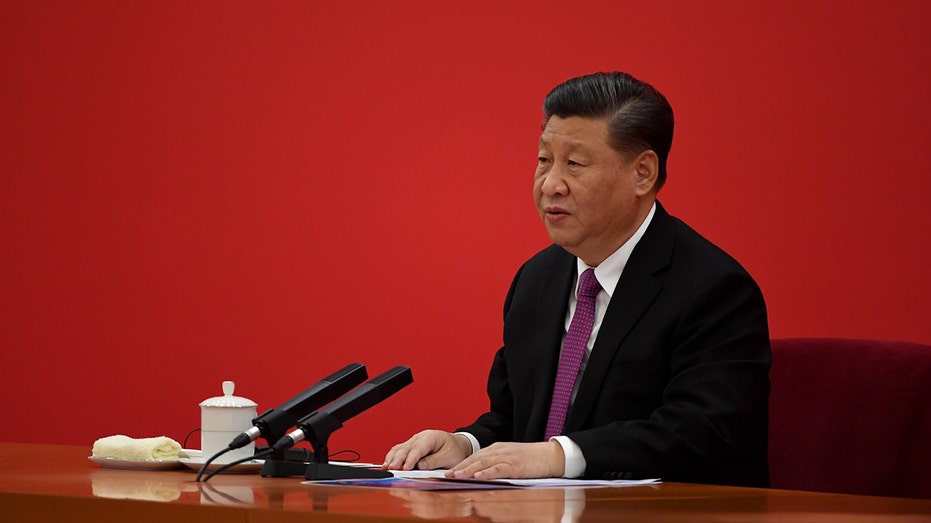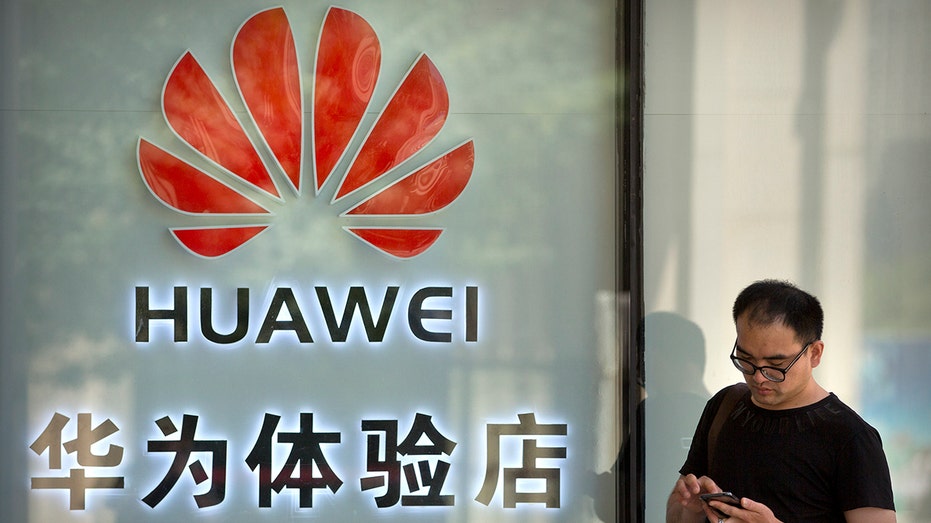China’s newest weapon to nab Western technology – its courts
Rulings nullify patents in industries it deems important, including technology, pharmaceuticals and rare-earth minerals
R 'Ray' Wang discusses the US' tech war with China
Constellation Research Chair and Principal Analyst R 'Ray' Wang discusses the U.S.' tech war with China and the impact to businesses including Apple, semiconductor chip production, the AI race, and intellectual property theft.
The growing conflict between China and the U.S. extends from computer-chip factories to a suspected spy balloon over American skies. Running through it all is a struggle for technological superiority.
China has striven for years to develop cutting-edge technologies, in part through heavy spending on research. Now, according to Western officials and executives, it also has mobilized its legal system to pry technology from other nations.
Officials in the U.S. and European Union accuse China of using its courts and patent panels to undermine foreign intellectual-property rights and help Chinese businesses. They say China is focusing such efforts on industries it deems important, including technology, pharmaceuticals and rare-earth minerals.

In this photo released by China's Xinhua News Agency, Chinese President Xi Jinping speaks during the annual Central Economic Work Conference in Beijing. The ruling Communist Party has called for faster technology development to increase China's econo (Huang Jingwen/Xinhua via AP / AP Images)
A U.S. manufacturer of X-ray equipment had a decade-old patent invalidated by a Chinese legal panel. A Spanish mobile-antenna designer lost a similar fight in a Shanghai court. Another Chinese court ruled that a Japanese conglomerate broke antitrust law by refusing to license its technology to a Chinese rival.
CHINA CONTINUES TO LEAD WORLD IN COUNTERFEIT AND PIRATED PRODUCTS: USTR REPORT
At China’s Communist Party congress in October, when Xi Jinping secured a third term as party leader, he praised the country for becoming a global innovator and pledged to help it prosper further. "We will increase investment in science and technology through diverse channels and strengthen legal protection of intellectual property rights, in order to establish a foundational system for all-around innovation," he told Chinese lawmakers.
The battle over China’s acquisition of technology has raged for years. Counterfeit products and logo look-alikes are pervasive in China. Recently, Beijing has tried to crack down on domestic companies violating the intellectual-property rights of some foreign firms. In July, luxury shoemaker Manolo Blahnik said it won a long-running trademark dispute against a Chinese businessman accused of improperly selling shoes under a similar name.
Officials in the U.S. and EU and executives at some Western companies, however, say Beijing is going the opposite route in some industries. China’s State Administration for Market Regulation, the government body that oversees all intellectual-property matters, and the Chinese embassy in Washington didn’t respond to requests for comment.
The conflict is central to the growing competition between the U.S. and China for technological and economic superiority. The U.S. has slapped restrictions on chip-related exports to China. Beijing has accused the U.S. of politicizing science and technology to try to protect American leadership in those fields.
In December, the EU sued China in the World Trade Organization on behalf of Swedish telecom-equipment maker Ericsson AB and other companies, complaining that China has barred EU companies from suing to protect their patents in courts outside China. The EU called China’s policy "extremely damaging," saying Chinese companies requested the intervention "to pressure patent right holders to grant them cheaper access to European technology."

An Ericsson logo is pictured at the Mobile World Congress (MWC) in Shanghai, China, June 28, 2019. REUTERS/Aly Song/File Photo (Reuters Photos)
Canada, Japan and the U.S. had asked to join an initial version of the European complaint, which the EU said could now take about 18 months to adjudicate.
| Ticker | Security | Last | Change | Change % |
|---|---|---|---|---|
| ERIC | TELEFONAKTIEBOLAGET LM ERICSSON | 11.16 | +0.22 | +2.01% |
China’s Ministry of Commerce said it regretted the EU’s decision, would comply with WTO dispute-settlement procedures and would "resolutely safeguard its legitimate rights and interests."
In a 2021 EU survey about global intellectual-property protection, responding companies and people expressed concerns about "a tendency of court rulings to favor Chinese stakeholders when strategic sectors or companies, in particular state-owned enterprises, are concerned," according to the survey. Respondents called patent invalidation a serious problem in China.
IMPACT OF GEOPOLITICAL TUMULT ON BUSINESSES TO CONTINUE IN 2023, SAY RISK EXPERTS
Beijing’s stance on intellectual property has global implications because so many products are made in China.
"Intellectual property is a core factor for competitiveness on the international stage, as well a focal point of international dispute," Mr. Xi said in a November 2020 speech to a committee of leading Communist Party members, according to an excerpt in a party publication. "We need to have the courage and the capacity to stand up for ourselves in this regard." After Mr. Xi’s address, leading party members concluded China must "shift from being a major absorber to a major producer of IP and establish itself as a global IP leader," the publication said.

Chinese President Xi Jinping speaks with Russian President Vladimir Putin via a video link, from the Great Hall of the People on December 2, 2019 in Beijing, China. (Noel Celis - Pool/Getty Images / Getty Images)
Fractus SA, the Spanish antenna designer, and Vectis IP Ltd., its British technology-licensing partner, were among at least eight companies that had patents overturned in China at the same time in late 2020. A Shanghai court refused to stop what Fractus and Vectis alleged was infringement of their wireless antenna patents by a Chinese company. The two companies, which are litigating several patents with Chinese rivals, are appealing the ruling.
"It is puzzling that so many cases went wrong at the same time," said Vectis Chief Executive Giustino de Sanctis. He said the experience prompted his company to moderate its once-strong expectations for the Chinese market. "We will be more cautious," he said.
Patent holders worldwide are routinely obliged to license technologies that are crucial to an industrial standard, such as 5G telecommunications. In other cases, they are free to select the licensees.
A court in Ningbo, near Shanghai, ruled in 2021 that an affiliate of Japan’s Hitachi Ltd. had violated antitrust law by refusing to license its patented rare-earth magnet technology to a Chinese company. The ruling is "far removed from international practice in relation to the exercise of patent rights and the application of antitrust law," Hitachi Metals said in a written statement. It is appealing to China’s Supreme People’s Court.
CHINA EXPERT WARNS 'WAR IN ASIA' IS COMING IF US DOESN'T ACT: 'THE CHOICE IS OURS'
Mallentech Electronics Inc., an automotive-sensor maker with 35 employees in Troy, Mich., has accused two Chinese companies of improperly taking trade secrets and Mallentech-designed machinery, and of applying for seven patents using Mallentech’s intellectual property. In 2021, a municipal court in Chengdu said that Mallentech’s evidence was inadmissible because of how it was collected.
Mallentech is appealing the decision, arguing that the court erred in dismissing the case.
"The Chinese legal system is biased against foreign companies," said Mallentech President Steve Chen, a Chinese-born naturalized American.
American Science & Engineering is the X-ray equipment maker whose patent was invalidated by China in 2018. The Billerica, Mass.-based company had pioneered X-ray telescopes that helped NASA discover new stars, then shifted its focus after realizing its technology could detect dangerous or illegal items at security checkpoints.
AS&E devised a product to complement the machines it made for airports and seaports. It placed a low-powered X-ray machine on the back of a Ford Motor Co. chassis. The U.S. military used the mobile scanner to detect improvised explosive devices during the wars in Afghanistan and Iraq, the company said. Domestic law enforcement could disguise the vehicle as a delivery van and use it to scan cars in, say, a stadium parking lot.
The X-ray van, called the ZBV, made its debut in 2003. Michael Tropeano, general manager of AS&E’s cargo-scanning division, said he thought the product would be a winner from day one.
Rivals were impressed. "AS&E was far and away the world leader" in its segment, said Stephen Phipson, president from 2004 to 2011 of the detection unit of British rival Smiths Group PLC. Los Angeles-based OSI Systems Inc., which makes Rapiscan airport-security machines, acquired AS&E in 2016 for $269 million.
| Ticker | Security | Last | Change | Change % |
|---|---|---|---|---|
| OSIS | OSI SYSTEMS INC. | 271.26 | +13.10 | +5.07% |
In 2017, Mr. Tropeano heard from a colleague about a pitch in Argentina by a Chinese rival, Nuctech Co., that appeared to be promoting a ZBV copycat.
AS&E didn’t have patent protection in Argentina, but it did in China. An AS&E lawyer sent Nuctech a letter. "Recently we’ve noticed that Nuctech may be offering similar products for sale," it said. AS&E took protection of its intellectual property seriously, the letter said, and suggested that the two companies discuss a licensing agreement.
A few days later, a Nuctech executive responded by saying the company owned all relevant intellectual-property rights. That same day, a Chinese trade group asked China’s Patent Reexamination Board, a legal body, to consider invalidating AS&E’s rights to its scanning van.
In 2018, the board did just that, concluding that AS&E’s patent wasn’t original enough. "Once that happened, I was like, ‘Holy cannoli. Here they come into the market,’" Mr. Tropeano said.
TOP JUSTICE DEPARTMENT OFFICIAL WARNS AGAINST USING TIKTOK: 'WE NEED TO BE VERY CONCERNED'
Nuctech played no role in invalidating AS&E’s patent, said Robert Bos, a Nuctech deputy general manager. The company, once led by the son of former Chinese leader Hu Jintao and now controlled by a Chinese state-run nuclear-plant operator, said it developed its own X-ray van and began selling it in 2000.
AS&E’s scanning van was one of the company’s most profitable products, generating sales of more than $1 billion since its introduction. Company executives figured that appealing the Chinese court’s decision likely would be futile, but was worth doing anyway. But first they needed to try to fend off Nuctech in countries where AS&E didn’t have patent protection, including much of Latin America and Eastern Europe.
The company slashed the price of the ZBV, which had sold for about $1 million each. In a reverse auction in Brazil for about a dozen machines, Mr. Tropeano said, he decided to do whatever it took to win because he wanted to prevent Nuctech from breaking into the market.
AS&E couldn’t match Nuctech’s pricing offer. "These guys are going to go to a dollar," Mr. Tropeano recalled thinking. AS&E eventually won after local authorities disqualified Nuctech because of errors in the bid procedure, AS&E said.
AS&E boosted research and development to try to stay ahead of Nuctech’s models. Mr. Tropeano said pulling away from Nuctech was hard. "They’re catching up," he said. "It becomes about incremental improvements."
At the time, the Trump administration was trying to ban the use of equipment from Huawei Technologies Co., the Chinese cellular-hardware maker, in the U.S. and allied countries over spying fears.

In this May 29, 2019, file photo, a man uses his smartphone outside of a shop selling Huawei products at a shopping mall in Beijing. (AP Photo/Mark Schiefelbein, File)
Jenna Dunay, vice president for international government affairs at AS&E’s parent company, OSI, reached out to U.S. officials in agencies including the International Trade Administration’s Advocacy Center, which helps American companies win foreign-government procurements.
BORDER SOURCES TO MARIA BARTIROMO: DOZENS OF CHINESE NATIONALS ALLOWED TO CROSS INTO US EVERY DAY
She said she told U.S. officials that Nuctech was an even bigger threat than Huawei, on both commercial and national-security grounds, because it, unlike Huawei, is directly owned by Chinese state entities. She said Nuctech could potentially send data to Chinese authorities, or obscure or alter images or videos. In the worst-case scenario, she said, Nuctech could allow hidden soldiers or weapons through checkpoints.
A Nuctech spokeswoman said AS&E’s argument was "appalling speculation." She said Nuctech was a politically neutral company focused on providing safe, innovative and reliable security systems.
In May 2020, the State Department sent its diplomats a memo outlining a campaign to lobby allies to ban Nuctech from their countries. In December of that year, the Commerce Department’s Bureau of Industry and Security added Nuctech to a list that makes it hard for the Chinese company to buy U.S. components without Washington’s authorization.
CLICK HERE TO GET THE FOX BUSINESS APP
In 2021, AS&E exhausted the appeals process in China, which upheld the original ruling. Last August, the company was notified of a new legal proceeding.
A Chinese patent panel opened a new case against AS&E after receiving another petition. The panel will decide whether to invalidate an AS&E patent for the technology behind a stationary vehicle scanner.
Chieko Tsuneoka contributed to this article.




















